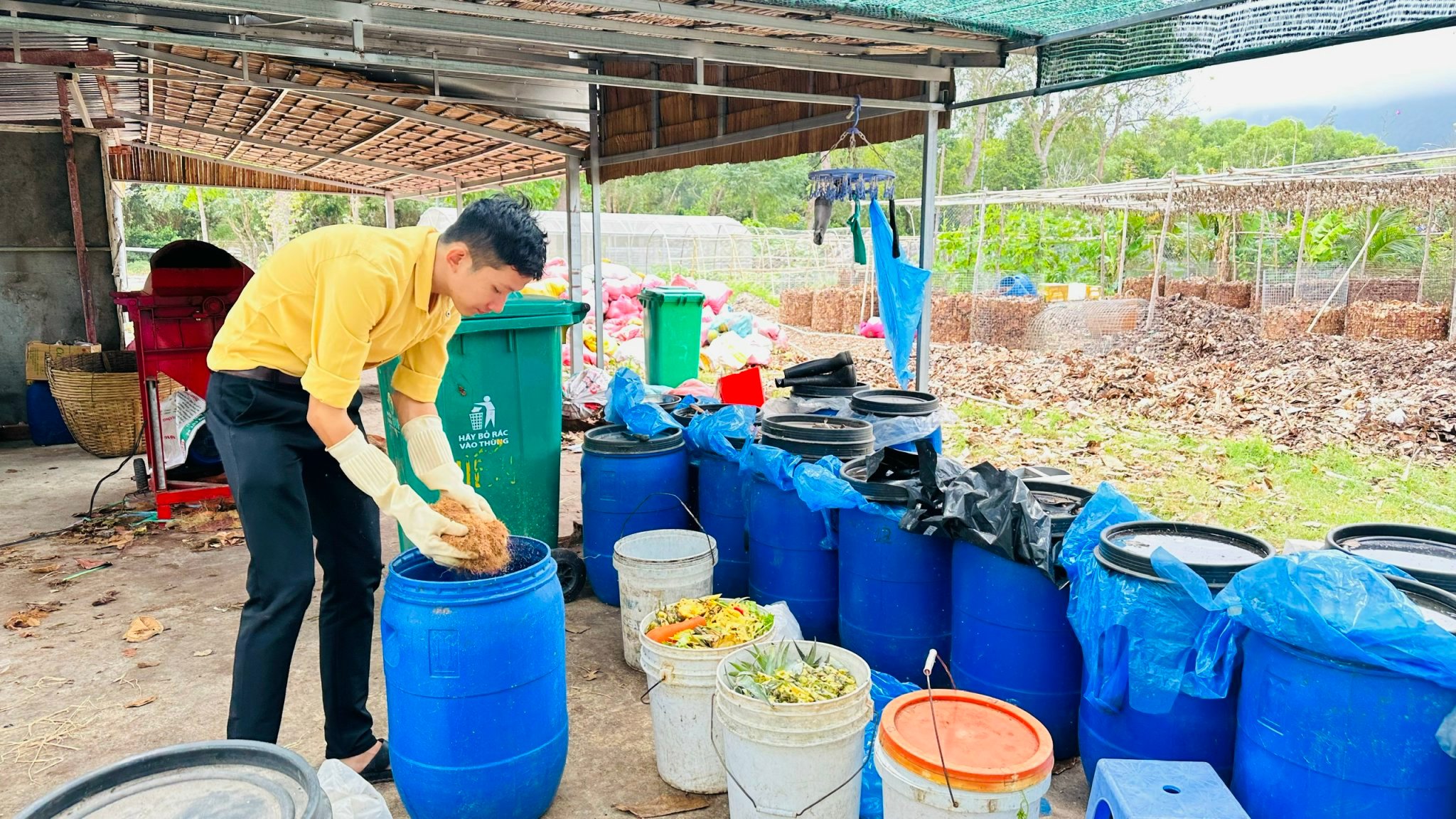 |
| The collected organic waste is composted into fertilizer. |
The people responded enthusiastically and participated.
Following the initiative of the District Women's Union, in recent years, the family of Ms. Tran Kim Le Thi (Group 2, Ward 5, Nguyen Hue Street) has systematically and thoroughly implemented waste sorting at source. Leftover vegetables, soup scraps, spoiled rice, etc., are placed in the green organic waste bin. According to Ms. Thi, these types of waste are collected by the Public Works Management Board of Con Dao District and taken to a separate area for composting into organic fertilizer. "Recognizing the practical significance of waste sorting, my family participates and encourages many women in residential areas to join in sorting waste at source, including sorting organic waste," Ms. Thi said.
According to the Con Dao District Public Works Management Board, in May 2023, the Board, along with a group of experts (from the "Ocean Plastic Waste Reduction Project" of WWF Vietnam), began implementing a model of composting waste into organic fertilizer. "Initially, we selected 42 households and 4 restaurants in Group 1, Residential Area No. 5 to conduct a pilot project. To guide households in sorting and processing organic waste at the source, we organized two training courses on composting from kitchen organic waste. Accordingly, people were instructed on how to compost using various types of waste from kitchen vegetables and fruits," said Ms. Le Mong Thuy, Director of the Con Dao District Public Works Management Board.
According to the Public Works Management Board, during the pilot phase, participating forces collected approximately 110 kg/day of organic waste through sorting at households, restaurants, and Con Dao market. The collected waste was sorted and recycled using two methods: fermentation and aerobic composting. For the fermentation method, organic waste including leftover food and vegetables was composted with yeast in sealed plastic containers. The resulting compost could be used as a base fertilizer to improve soil quality.
For aerobic composting, organic waste such as flowers, fruits, dry leaves, coconut fiber, straw, sawdust, etc., is composted in a wire mesh enclosure for aeration. After 4 months of composting, humus fertilizer is obtained for plant cultivation.
Ms. Le Mong Thuy further informed that, following the successful trial, from July 2024 to the present, the "Circular Economy Project" in Con Dao district has widely applied the process from sorting organic waste at source to collecting and composting it.
Many practical benefits
After nearly two years of building and implementing a model for collecting and sorting waste to operate organic waste recycling facilities throughout the district, the model has achieved quite positive results, aiming to increase the rate of waste reuse and recycling at source in Con Dao by 1%. Ms. Nguyen Thi My Quynh, in charge of the Ocean Plastic Waste Reduction Project - WWF Vietnam, said: “Through this model, people are encouraged to develop the habit of sorting waste at source, contributing to reducing the amount of household waste released into the environment every day. This helps to work together with the local government to reduce the pressure on waste collection and treatment and reduce costs for environmental protection.”
According to Engineer Nguyen Trong Nghia, of the Con Dao District Public Works Management Board, an average of 3.68 tons of organic waste is collected daily. From the organic waste collected from households, the Con Dao District Public Works Management Board concentrates it in the nursery garden in area Q15 (the center of Con Dao district) to compost it into organic fertilizer. “All of this organic fertilizer is used for farming purposes. In the Q15 nursery garden, there is a whole vegetable garden with a variety of vegetables including gourds, cucumbers, tomatoes, water spinach, cabbage, and various herbs… After harvesting, some of the vegetables and fruits are used for the board's staff and workers, and some are sold to residents on the island,” Mr. Nghia said.
WWF Vietnam experts assess that the model of composting waste into organic fertilizer helps minimize CH4 greenhouse gas emissions from landfills, while also improving agricultural land, increasing the quality of agricultural products, and enhancing the quality of the living environment. This significantly contributes to building a model for the circular economy and ecotourism project in Con Dao district.
Text and photos: QUANG VU
Source: https://baobariavungtau.com.vn/kinh-te/202506/bien-rac-thanh-phan-huu-co-1044978/
























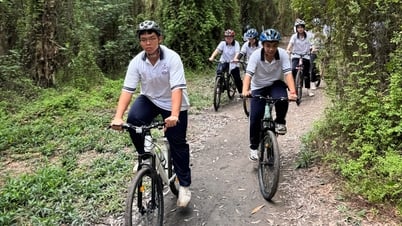

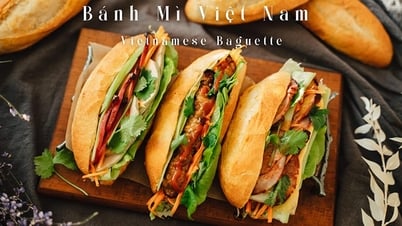
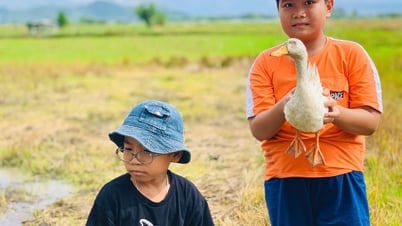

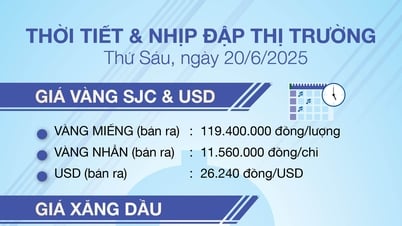












































































Comment (0)